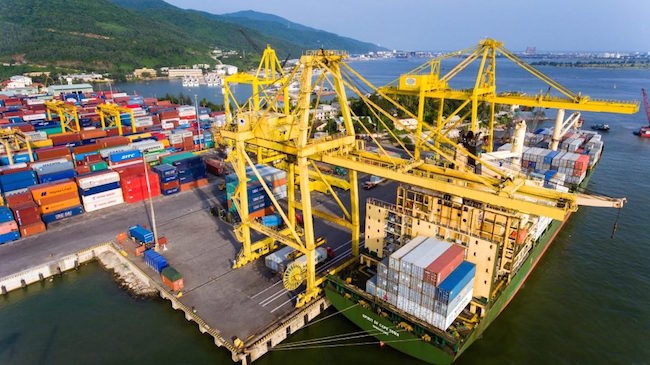Vietnam turns semiconductor vision into action
The global semiconductor industry is being reshaped by geopolitical tensions, shifting supply chains, and the surge of digital technologies.




The changes in the way of thinking of Vietnam's leading private corporations should be appreciated, given the fact that Forbes has included Vietnam's four business people in the list of billionaires in the world.

The failure of some state-owned enterprises in recent years has formed a negative attitude towards the multi-sectoral investment strategy. Through monitoring and analysing large-scale corporate models in the country and the world, we affirm that this is a wrong view.
In the first generation, enterprises were mostly capital-run and governed by the State, which resembled the model of the planned economy (the former Soviet Union) and chaebol (Republic of Korea) in the early and mid-1990s.
Vietnam’s corporations which were then expected to be the "steel fists" included Song Da Corporation, Vietnam Posts and Telecommunications Group (VNPT), Vietnam National Petroleum Group (Petrolimex), Vinashin, Vinalines, Vinaconex, Vinachem, Vinacomin.
However, the multi-sectoral strategy of these "steel fists" failed. The way of thinking was not wrong, but the way it had been done was not professional, and most importantly, there had not been any leaders having enough capabilities and qualities to run these projects.
Multi-sectoral investment with a vision to agricultural development
Conversely, behind the success of Vingroup, Hoa Phat, Thaco, Vinamilk, Vietjet Air, FPT or Masan are individuals. They are passionate, powerful, and willing to take risks. It is noteworthy that these industrial-generation entrepreneurs have shifted their attention to Vietnam’s agriculture.
With almost two-thirds of Vietnam’s population directly involved in agriculture, along with the tropical climate and the largely poorly-farmed fields, there are abundant opportunities and challenges ahead.
Recently, some corporations have attempted to plan some tactics as follows: Loc Troi Group aims to build deep processing price chain, relying on germs as the foundation; and SAM Holdings invests in agriculture with the capital from telecom cable production;
Novaland, leading in the real estate sector, keeps its predecessor Anova Group active, which is determined to maintain its agricultural value chain.
In the meanwhile, Thaco has a large-scale agricultural project in Thai Binh; and Hoa Phat has cattle-raising projects with estimated revenue of up to billion US dollars.
Multi-sectoral breakthroughs
Vingroup’s VinFast probably makes the headlines in 2017 and 2018 with positive changes in the global value chain process of the automobile sector. However, the challenges of this sector do not lie in the market or the policy, but the transport infrastructure.
In the case of VinFast, what surprised us is not the technology but the way of thinking about design. VinFast boldly emerged from the traditional mindset to approach and cooperate with the world's No. 1 regarding design, Italy. Besides, they have actively pursued the global trend of electric vehicles. Hope all these things may motivate a tight race with Thaco in the Vietnamese automobile industry.
>> High-tech agriculture project copes with hindrances of capital flow worth billions of dollars
The global semiconductor industry is being reshaped by geopolitical tensions, shifting supply chains, and the surge of digital technologies.
The change in APA approval authority is expected to shorten processing time and enhance business proactiveness in international tax negotiations.
As hybrid cloud systems grow more complex, Vietnamese enterprises are struggling to detect cybersecurity threats moving laterally within their own networks.
The submission of the draft resolution on Vietnam’s international financial center to the National Assembly heralds a new developmental era for the country.
More than just running a 5-star resort, Kristian Petersen is redefining the art of hospitality with a humane and sustainable leadership philosophy.
For Tyna Huynh, co-founder of Drinkizz, organic is not just a food choice but a way of life that fosters a deep connection between people, nature and community.